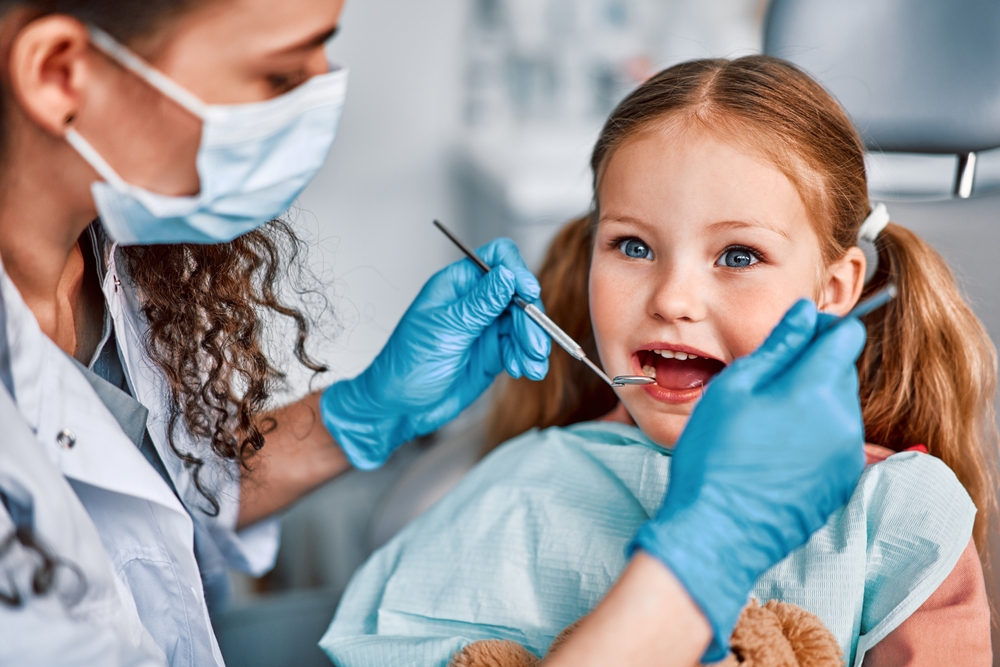Baby teeth, also known as primary teeth, are crucial for a child’s development. They may seem temporary, but they play significant roles in oral health and overall well-being. This post explores why early dental care is vital for maintaining your child’s oral health.
Why Baby Teeth Are Important
Baby teeth have several essential functions:
- Foundation for Permanent Teeth
Baby teeth guide permanent teeth into their correct positions. They help ensure proper alignment and spacing. Premature loss of a baby tooth can cause misalignment or crowding, leading to potential orthodontic needs later. - Speech Development
Baby teeth aid in speech development. They work with the tongue and lips to form sounds and words. Missing or damaged teeth can cause speech delays or difficulties. - Facial Structure
Baby teeth support facial structure by helping maintain the shape of the cheeks and jaw. Their premature loss can affect facial development and self-esteem. - Chewing and Nutrition
Healthy baby teeth are necessary for proper chewing. Chewing breaks down food for better nutrient absorption. Cavities or missing teeth can lead to poor nutrition and dietary imbalances. - Self-Esteem and Confidence
A healthy smile boosts a child’s self-esteem. Dental issues like cavities or discoloration can make a child feel self-conscious, impacting social interactions and confidence.
Common Dental Issues in Baby Teeth
Baby teeth can experience dental issues similar to permanent teeth:
- Cavities (Tooth Decay)
Cavities are caused by plaque buildup. Plaque interacts with sugars and produces acids that erode tooth enamel, leading to decay. Cavities in baby teeth can spread and cause infections. - Gum Disease
Gingivitis can cause red, swollen, and bleeding gums. Untreated, it can progress to severe periodontal disease, damaging the soft tissue and bone around the teeth. - Injury
Active children are prone to injuries. A knocked-out or fractured baby tooth can be painful and may need immediate dental care.
The Role of Early Dental Care
Early dental care helps prevent and address dental issues:
- Prevention of Dental Issues
Regular check-ups help prevent serious dental problems. Dentists can identify early signs of decay or disease and provide preventive treatments like fluoride applications. - Establishing Good Oral Hygiene Habits
Early visits teach proper brushing and flossing techniques. Establishing good habits from a young age ensures lifelong oral health. - Early Detection of Developmental Issues
Dentists can monitor teeth and jaw development. Early detection of issues like misalignment can reduce the need for extensive treatment later. - Education for Parents
Pediatric dentists provide valuable advice on nutrition, teething, and oral care. Parents learn how to care for their child’s teeth and prevent common issues. - Building a Positive Relationship with the Dentist
Familiarity with the dentist can reduce anxiety. Early visits help children feel comfortable in the dental office, making future visits less stressful.
When Should Your Child First See a Dentist?
The American Academy of Pediatric Dentistry recommends a child’s first dental visit by their first birthday or within six months of the first tooth eruption. This visit allows the dentist to:
- Examine Teeth and Gums
Check for decay, misalignment, and other issues. - Provide Oral Hygiene Instructions
Demonstrate brushing and flossing techniques. - Discuss Diet and Nutrition
Offer advice on reducing cavity risk and promoting healthy teeth. - Offer Teething Tips
Provide strategies to soothe teething pain.
Tips for Caring for Baby Teeth
Here are some tips for maintaining your child’s baby teeth:
- Start Brushing Early
Clean your baby’s gums before teeth appear. Use a soft toothbrush and fluoride toothpaste once teeth emerge. - Floss Daily
Begin flossing between teeth as soon as they touch. - Limit Sugary Foods and Drinks
Reduce sugary snacks and beverages to prevent decay. - Avoid Bedtime Bottles
Avoid giving sugary liquids at bedtime to prevent decay. - Encourage a Healthy Diet
Provide a balanced diet with fruits, vegetables, and dairy to strengthen teeth. - Schedule Regular Dental Visits
Schedule check-ups every six months or as recommended.
Conclusion
Baby teeth are essential for guiding permanent teeth, supporting speech, and maintaining facial structure. Early dental care is crucial for preventing dental issues and promoting long-term oral health. Prioritizing baby teeth care helps set the foundation for a lifetime of healthy smiles.
